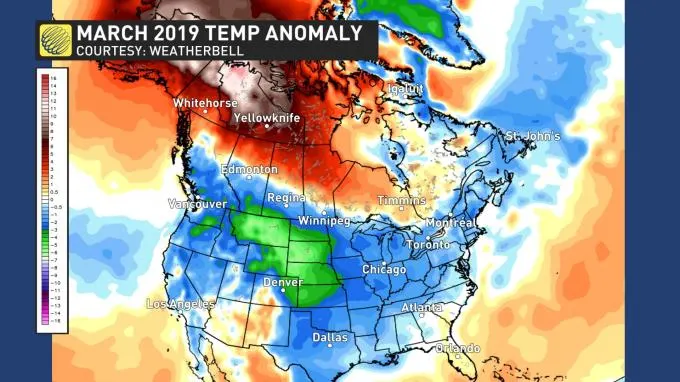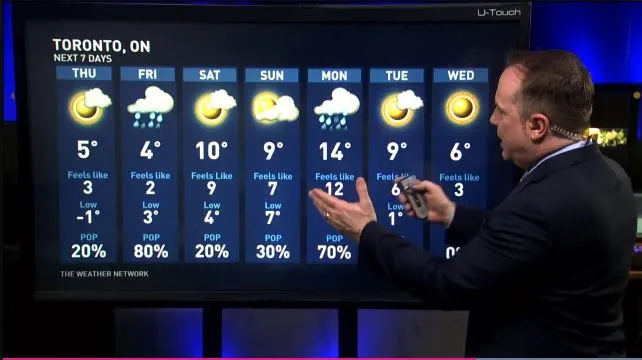
Big Ontario city hasn’t hit 13 C in 2019, but Whitehorse has
It's April and Toronto has yet to hit 13°C. Whitehorse reached it last month.
The year 2019 is only a few months in, but so far it hasn’t been a great start for warmth in Toronto.
Last month, the city only had two days where temperatures surpassed the 10 degree-mark, with 12.5°C being the highest, achieved on March 28.
Meanwhile, 15 years ago, on Jan. 3, 2004, Toronto hit 13 degrees.
Visit our Complete Guide to Spring 2019 for an in-depth look at the Spring Forecast, tips to plan for it and much more
SEE: WHEN WILL THIS SOUTHERN ONTARIO CITY HIT 13 DEGREES?!
But, there is still plenty of time for the city to reach it before it will break a record for the latest date in the calendar year, which was April 28, 1965, according to Weather Network meteorologist Tyler Hamilton.
Toronto has typically reached the teens by early March, on average, in recent years, while in the 1940s and 1950s, temperatures didn’t normally hit the mark until early April, he added.
Thirteen degrees isn’t exactly warm and it is certainly a “far cry” from patio weather.
“We are yet to record 13°C and it’s already a quarter of the year gone,” said Hamilton.
PERSPECTIVE: WHITEHORSE HAD MORE WARM DAYS THAN TORONTO IN MARCH
To put Toronto’s temperature struggles into perspective, Whitehorse, Yukon, had nine days above 10°C in March and hit a maximum high of 13.8°C on March 20.
The average high temperature during March in Whitehorse, Yukon (+4.7ºC) was warmer than the average high recorded in Toronto (+3.1ºC), according to meteorologist Dr. Doug Gillham.
“March was an historic month across most of northern Canada with several places, including Yellowknife, recording their warmest March on record. Inuvik, N.W.T., was a whopping 14.4ºC warmer than normal for the month,” said Gillham.

March 2019 temperature anomaly across Canada.
HOW DID THIS HAPPEN?
Meteorologist Chris Murphy explained the reasoning for the temperature differences between Whitehorse and Toronto last month.
He said there was an “unusually strong” ridge of high pressure that set and maintained record-breaking temperatures across much of Western Canada and in the north.
However, that same ridge of high pressure has since collapsed and places such as Whitehorse are now experiencing below-seasonal temperatures (-2°C on April 3), while Toronto is closer to seasonal values (8°C on April 3).
Going forward, Toronto’s temperatures will increase, on average, by about 1.5°C per week, which is the same for Whitehorse.
“We bave a nice-looking weekend and temperatures are certainly warming up,” said Murphy, on Toronto's upcoming forecast.
As it stands now, Toronto is in line to see 14°C on Monday, April 8, but with it still being several days out, there's still some uncertainty with how warm things get.
Be sure to check back for the latest updates in your area.

Meterologist Chris Murphy highlighting the seven-day forecast for Toronto.






